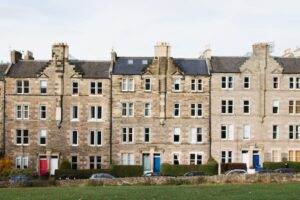Action on short term lets – academic co-founds coalition to regulate the short-term lettings market
 One year on from the publication of a report into the effects of Airbnb on housing in Manchester, housing organisations and University of Manchester academics are now collaborating around the need for new national legislation to protect housing.
One year on from the publication of a report into the effects of Airbnb on housing in Manchester, housing organisations and University of Manchester academics are now collaborating around the need for new national legislation to protect housing.
The rising number of entire-property short term lets or ‘Airbnbs’ have been in the news again recently because of the effects on shortages of housing in cities such as Manchester as well as rural and coastal areas across the UK. Following University of Manchester research a new coalition, Action on Short Term Lets, has been formed, to help explain the problem and advocate for regulation that gives councils the power to refuse further transformation of housing by landlords into more lucrative short-term lets.
In December 2022 the government confirmed that it was introducing a licensing scheme, and was about to introduce a consultation on whether planning permissions should be required for new short term lets.
Housing organisations and activists from Manchester, London, Bristol and elsewhere have been working with University of Manchester sociologist Dr Luke Yates, from the University’s Sustainable Consumption Institute, to measure the rising number of entire-property short-term rentals (‘Airbnbs’) and the housing crisis. Based on evidence from InsideAirbnb and a report published last year, they are advocating for councils to have power to restrict further growth in entire-home Airbnbs.
The Sustainable Consumption Institute (SCI) researches how reconfiguring consumption and production systems can contribute to less resource-intensive ways of life. Its projects explore the social relationships that hinder change, as well as those that might enable the transition to greater sustainability.
The initial research showed that in 2016-2020 the number of entire homes lost rose nearly four fold. Although the pandemic led to a small decline, numbers have climbed again to 1362 entire homes, which might otherwise be housing 3173 long-term residents, based on the average GM household size of 2.33. Manchester City Council recently recorded 3300 homeless households.
Greater Manchester Tenants Union, Action on Empty Homes and Greater Manchester Housing Action are among the coalition of groups who would like to see regulation similar to that recently passed in Scotland and Wales. There, a combination of mandatory licensing schemes, planning laws and ‘short term let control areas’ are designed to allow councils to protect their housing. The regulation follows similar action in cities across Europe and North America.
Luke Yates’ work on Airbnb began with an investigation into the company’s controversial use of ‘corporate grassroots lobbying’, where seemingly independent groups, ‘Home Sharing Clubs’, were created by the company to advocate for lighter regulation in the context of increasing housing pressures. That research noted the selection of certain landlords as Airbnb’s activists – those who only held one listing or ‘shared’ their primary residence as opposed to landlords with several entire-home properties – and the range of forms of support offered by the company to its groups, which included curating, editing and rehearsing hosts’ ‘stories’ that they would share with policymakers. That led to calls for reviewing lobbying laws in the UK and internationally.
